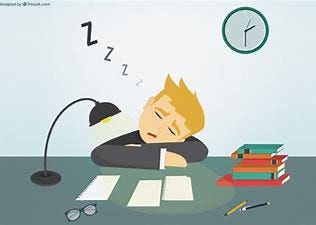Maximize Your Productivity: The Case for a Work Cutoff Time
Written on
Understanding Work Boundaries
Have you ever found yourself engaged in a task that demands intense concentration, only to realize that your focus has completely slipped away? Perhaps you can manage to concentrate a bit, but your effectiveness has dropped dramatically, and productivity seems to vanish.
This situation tends to occur not just after 7:30 PM for me, but throughout various times of the day. There's nothing inherently significant about the time of 7:30 PM; similarly, waking up at 5:30 AM doesn't guarantee maximum productivity. Productivity isn't governed by strict rules but rather by general guidelines.
Here, I’ll share a couple of foundational principles that can help you optimize your productivity both now and in the future.
Reason #1: Identifying Your Peak Energy Period
I refrain from working past 7:30 PM because, by then, my energy has dipped significantly. After a full day of studying, coupled with an intense workout and dinner around 6:30 PM, I’m ready to wind down.

If I push myself to work during this low-energy time, it often feels futile; I struggle more to keep my eyes on the pages than to tackle any real problem-solving. Think of it like a grocery store with only one cashier serving a long line of customers—progress will be painfully slow. But with a full staff of cashiers, the line moves quickly!
Your energy levels function similarly. Discover your peak energy times—those moments when your focus is sharpest, allowing you to accomplish the most in the least amount of time. You might even experience multiple productive periods in a day!
To find your peak energy, try this:
- Keep a log of how you feel throughout the day.
- Note when you're most alert and when you experience slumps.
- Track these feelings for at least a week to identify consistent patterns.
Allocating Tasks According to Energy Levels
Organize your tasks around your energy levels. Tackle your hardest tasks during your peak energy times, and save the easier ones for when your energy wanes.
Remember, the difficulty of tasks is subjective. What feels easy for one person may be daunting for another. Ensure you’re using your peak energy wisely—don’t waste it on simple tasks like organizing your workspace!
Tips for Optimizing Your Schedule
Here are some important considerations to keep your productivity high:
- Maintain a consistent daily routine to help regulate energy levels throughout the day.
- Be aware that significant life changes may shift your peak energy times.
- Stimulants like coffee can temporarily alter your energy state, so use them judiciously.

Special Considerations for Students
As a student, you may not have complete control over your schedule. Classes might dictate your energy allocation. Here are two strategies:
- Embrace your schedule—do what you can to maximize focus during class times.
- Distribute your energy smartly; conserve some for later classes instead of exhausting yourself early on.
For example, if you know you focus better in the morning, channel that energy into your morning classes and ease off a bit in the afternoon.

Reason #2: The Necessity of Relaxation
Amid all the productivity strategies, we often forget that we are human beings who need genuine breaks—not just brief respites to fuel another work session. I don't engage in work after 7:30 PM; that’s my time to unwind and decompress.
During the day, I strive to complete demanding tasks, so I deserve that time to relax—whether it’s enjoying entertaining YouTube videos, reading, or simply lounging around.
This relaxation period not only rejuvenates my mind but also prepares me for the following day’s early peak energy time.
What Will You Do After 7:30 PM?
I’m not suggesting that you must avoid work after 7:30 PM; rather, I’m sharing what has worked for me. Your optimal work hours will depend on your personal energy patterns and life circumstances.
Ultimately, the concepts of peak energy periods, aligning tasks with energy availability, and ensuring relaxation are guidelines, not strict rules.
So, how will you adjust your schedule after 7:30 PM? Will you implement any changes based on these insights? Feel free to share your thoughts!

Watch this video for tips on cooking efficiently:
This video, "Learn To Cook In Less Than 1 Hour," shares quick and effective cooking methods that can save you time in the kitchen, allowing for more relaxation or productive activities.